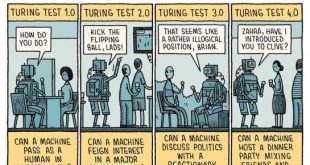from Asad Zaman From Ancient Greece to the late 19th century, rhetoric played a central role in Western education in training orators, lawyers, counsellors, historians, statesmen, and poets. However the rise of empiricist and positivist thinking marginalized the role of rhetoric in 20th Century university education. Julie Reuben in “The Making of the Modern University: Intellectual Transformation and the Marginalization of Morality” writes about this change as follows: “In the late...
Read More »Econometrics — a matter of BELIEF and FAITH
from Lars Syll Everybody who takes regression analysis course, studies the assumptions of regression model. But nobody knows why, because after reading about the axioms, they are rarely mentioned. But the assumptions are important, because if any one assumption is wrong, the regression is not valid, and the interpretations can be completely wrong. In order to have a valid regression model, you must have right regressors, the right functional form, all the regressors must be exogenous,...
Read More »Challenges of complexity economics
from Joachim H. Spangenberg and Lia Polotzek and WEA Commentaries In recent WEA Commentaries, the issue of complexity theory and its implications for economics have rightfully gained some prominence. However, while the authors picked up some relevant points, the issue deserves a more comprehensive treatment in new economics, beyond mobilising some arguments to bolster ongoing debates. It should be recognised instead that complexity requires a different way of thinking, and of asking...
Read More »We shouldn’t have to beg Mark Zuckerberg to respect democracy
from Dean Baker Last month George Soros had a New York Times column arguing that Mark Zuckerberg should not be running Facebook. (Does the NYT reserve space on its opinion page for billionaires?) The gist of Soros’ piece is that Zuckerberg has made a deal with Trump. He will allow all manner of outrageous lies to be spread on Facebook to benefit Trump’s re-election campaign. In exchange, Trump will defend Zuckerberg from efforts to regulate Facebook. Soros is of course right. Zuckerberg...
Read More »The transnational corporation and economics
from Grazia Ietto-Gillies and WEA Commentaries There is now a very large body of literature on theories of the transnational corporation (TNC) and the subject has reached a suitably mature stage to have a history of economic thought about it.2 The first theory of the ‘International Firm and its Operations’ was developed in 1960 by Steven Hymer, a Canadian student working for a doctorate under the supervision of Charles Kindleberger at the Massachusetts Institute of Technology. A British...
Read More »Econometrics and the Axiom of Omniscience
from Lars Syll Most work in econometrics and regression analysis is — still — made on the assumption that the researcher has a theoretical model that is ‘true.’ Based on this belief of having a correct specification for an econometric model or running a regression, one proceeds as if the only problem remaining to solve have to do with measurement and observation. When things sound to good to be true, they usually aren’t. And that goes for econometric wet dreams too. The snag is, of...
Read More »The Future of the Saranac Lake Ice Palace | #10 Dean Baker
Dean Baker, the current construction manager for the famous Saranac Lake Ice Palace, has been helping construct the spectacular palace for 38 years. In this North Country Climate Story, Dean walks us through the trials and tribulations that he has experienced while building the ice castle through the years, including battling warm temperatures, sawing ice that is too thick, weekend thaws, and much more. Enjoy!
Read More »The Future of the Saranac Lake Ice Palace | #10 Dean Baker
Dean Baker, the current construction manager for the famous Saranac Lake Ice Palace, has been helping construct the spectacular palace for 38 years. In this North Country Climate Story, Dean walks us through the trials and tribulations that he has experienced while building the ice castle through the years, including battling warm temperatures, sawing ice that is too thick, weekend thaws, and much more. Enjoy!
Read More »Failure of Turing’s conjecture
from Asad Zaman Note that this is a very POSITIVIST idea — if the surface appearances match, that is all that matters. I quote a passage from Pearl: The Book of Why, which provides a gentle introduction to the newly developed field (largely by him) of causal inference via path diagrams: In 1950, Alan Turing asked what it would mean for a computer to think like a human. He suggested a practical test, which he called “the imitation game,” but every AI researcher since then has...
Read More »Trade Wars: The economic and political theoretical implications and their impact on multilateralism – A Call for Papers
Trade Wars: The economic and political theoretical implications and their impact on multilateralism A new conference from the WEA, scheduled for October. Open call for papers
Read More » Real-World Economics Review
Real-World Economics Review







